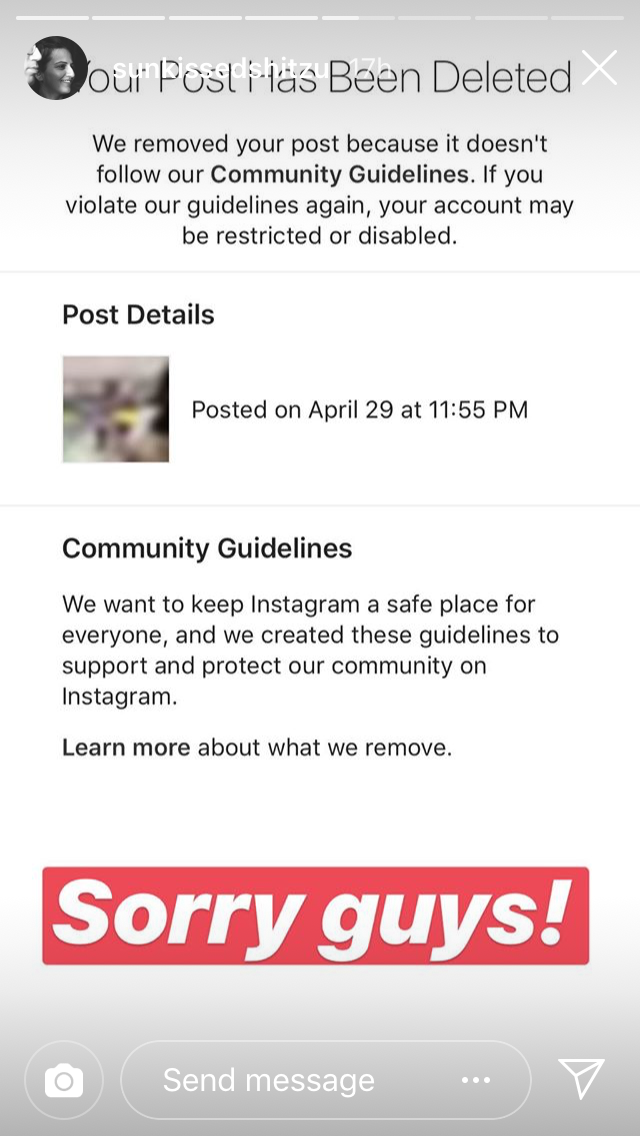Update: The video has since been taken down from Facebook.
Yesterday, at Sohna Road’s Nukkadwala restaurant, a middle-aged woman condescendingly told 30-year-old Shivani Gupta, who was wearing a dress, to come and sit down next to her.
She then asked her: “Aren’t you ashamed of showing off your legs to men?”
In a facetious response, attempting to diffuse the situation, Gupta said, “I’m actually very fond of showing off my legs.”
Offended, the woman then allegedly remarked that it was because of girls like Gupta that others get raped. Escalating the issue, she then proceeded to ask the men around the restaurant to rape such women [those who wear short dresses] because they are “inviting” it. Gupta alleges that the woman also said that girls like her “deserve to get raped.”
Infuriated by her remarks, Gupta, along with her friends, followed the woman to another store with the intent of seeking an apology. The confrontation that followed was recorded by the girls and was subsequently shared on Instagram and Facebook.
The woman, however, refused to apologise and adamantly defended her remarks. At one point, another woman intervened on behalf of the girls and confronted her, saying that she herself was a mother of two daughters and would never allow them to be subjected to such ridicule.
In fact, she even went to the extent of telling the woman that the only reason she was upset with Gupta’s clothes was because, “She has a body to flaunt and you don’t.”
While this statement has invited some criticism on social media for body-shaming and becoming part of the problem itself, others argue that it was made in the heat of the moment and can hardly be considered as harmful as the initial remarks made by the woman.
The video of this confrontation has gone viral and has, thus far, registered more than seven lakh views on Facebook. Instagram, however, reportedly took down the video on the ambiguous grounds of it being in violation of its community guidelines.

Social media aftermath
As the video gained widespread attention, many people came out in solidarity with Gupta and her friends.
However, in true social media fashion, this solidarity soon turned toxic, with people tracking down the woman on Facebook, sending her hate messages and, ironically, rape threats. Many users even fat-shamed the woman. Some went on to mock her accent and her inability to articulate herself “properly”. Other even called her mentally “unstable.”
Moreover, a picture was widely shared of the same woman in a dress which, many would argue, was hypocritical to say the least.
The woman has been identified as a school teacher, but has not responded or engaged on social media since the incident. For now, she has also deleted her Facebook account.
The ordeal prompted many to talk about the larger problem of internalised misogyny among women as a result of the patriarchal superstructure:
Sure, the woman espouses the worst of rape culture. Sure, she deserves to be chastised — which the other women at the mall definitely did. But ppl are now finding in her a symbol of all that is wrong with patriarchy, which, trust me, doesn’t rest on this woman’s shoulders alone.+
— Asmita (@asmitaghosh18) April 30, 2019
Similarly, Aishwarya Unnikrishnan, student of gender studies at Ambedkar University, posted on her Instagram handle saying:
“This incident was disturbing. I’m glad the women called her out so did the entire social media plebs. But when you end up using the same rhetoric to shame this woman, you are recycling the same toxic behaviour you called out. This is exactly how patriarchy functions.
She further says that a proper conversation, instead of uploading the video on social media and calling her out, would have been a better way to address the issue.
In response, Gupta says that they didn’t want to upload the video in the first place, but had to do so after the woman refused to apologise and continued to defend herself.
“We didn’t want to put up the video at all. We didn’t want to fight at all. That’s why we gave her multiple chances to understand what we were trying to say and very politely tried to have a conversation with her. But, as you can see in the video, she was not apologetic at all despite our repeated attempts,” she said.
Gupta and her friends have said they will file a police complaint against the woman.
The questions being raised after the video went viral pivot around the culture of ‘calling out’ people for their transgressions on social media. While what Gupta and her friends endured was completely unacceptable, it brings to the fore a set of larger questions on social media engagement:
Is calling people out or shaming them on social media a means unto itself, or can it actually result in any measurable progress? What other way is there to effectively deal with a situation of this nature?
Is the woman in this case the true agent of patriarchy, or is she also just another victim of the same kind of oppressive system? Is it easier to vilify another woman and, inadvertently, perpetuate the narrative of women being their own worst enemies?
But for now, social media has acted as a tool for Gupta and her friends to highlight perhaps just one such instance of many, stemming from deeply rooted and regressive societal norms.
Featured image credit: Flickr

